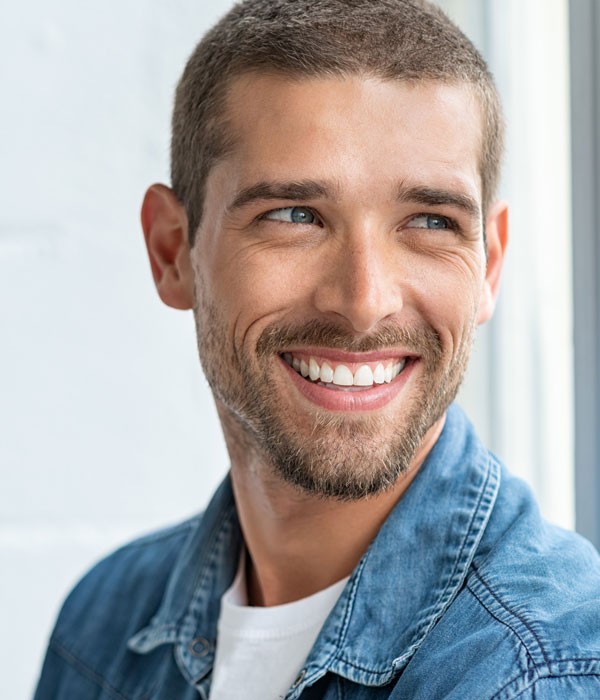Sleep Apnea
Sleep Apnea Treatment in Arlington Heights and Mount Prospect, IL
Sleep Apnea is one of the leading causes of excessive daytime sleepiness. It is a condition that affects a person’s breathing during sleep. Not only is sleep apnea a chronic health problem but it is also progressive, meaning it can get worse over time.

Characteristics of Sleep Apnea
- Breathing repeatedly stops and starts while asleep
- Pauses can occur 20 to 30 times or more an hour
- Each pause in breathing typically lasts 10 to 20 seconds or more
- Disrupts sleep 3 or more nights each week
- You often move out of deep sleep and into light sleep when your breathing pauses or becomes shallow. Typically, normal breathing then starts again, sometimes with a loud snort or choking sound
- Not age specific – it can affect anyone from childhood through to old age. Men and women can both develop sleep apnea, but it is more common to men – particularly middle-age men who are also overweight
According to the National Commission on Sleep Disorders Research, roughly 38,000 cardiovascular deaths annually are in some way related to sleep apnea. The links include high blood pressure, hypertension and stroke.
Common Types of Sleep Apnea
Obstructive Sleep Apnea
The most common type of sleep apnea is called Obstructive Sleep Apnea (OSA)
- An obstruction stops airflow in the nose and mouth because of large tonsils or tongue, deviated septum or receding chin
- The throat collapses during sleep and blocks the airway which prevents air from getting into the lungs
Central Sleep Apnea
Another type of sleep apnea is called Central Sleep Apnea
- Occurs when the area of brain that controls breathing doesn’t send proper signals to the muscles that control breathing. You make no effort to breathe for brief periods. You may awaken with shortness of breath or have a difficult time getting or staying asleep. Snoring doesn’t typically happen with central sleep apnea
Common Signs and Symptoms
The most common signs and symptoms of obstructive and central sleep apnea:
- Excessive daytime sleepiness (hypersomnia). You may find yourself rapidly falling asleep during the quiet moments of the day when you’re not active
- Loud snoring, this is usually more prominent in obstructive sleep apnea. Not everyone who snores has sleep apnea.
- Observed episodes of breathing cessation during sleep
- Abrupt awakenings accompanied by shortness of breath, which more likely indicates central sleep apnea
- Dry mouth or sore throat, morning headache
- Difficulty staying asleep (insomnia)
- Memory or learning problems and not being able to concentrate
- Feeling irritable, depressed, or having mood swings or personality changes
- Urination at night
- In children, sleep apnea can cause hyperactivity, poor school performance, and aggressiveness. Unusual sleeping positions, bedwetting, and may breathe through their mouths instead of their noses during the day
Untreated Sleep Apnea
If left untreated, sleep apnea can:
- Increase the risk for high blood pressure, heart attack, and stroke
- Increase the risk for or worsen heart failure
- Increase the chance of having work-related or driving accidents
- Increase the release of stress hormones. These hormones also raise the risk for or worsen heart failure
- Cause irregular heartbeats
- Change how your body uses energy which can increase your risk for obesity and diabetes
Treatment Options
- Life style changes for mild cases of sleep apnea (lose weight, quit smoking, avoid alcohol and medications such as tranquilizers and sleeping pills, sleep on side or stomach, keep nasal passages open with saline nasal spray)
- Oral Appliances (Mandibular Advancement Device (MAD), Tongue Repositioning Device (TRD))
- Breathing machines (Continuous positive airway pressure (CPAP), Bilevel Positive Airway Pressure (BiPAP)
- Surgery
If unexpected tooth pain or an accident have you suffering, give us a call and schedule an appointment. Reach out to our office by calling 847-758-0100 at your earliest convenience!
